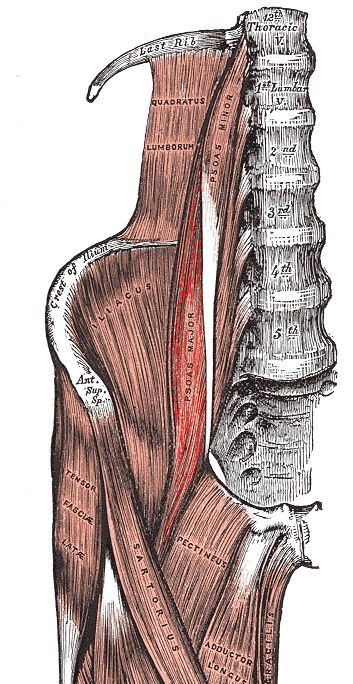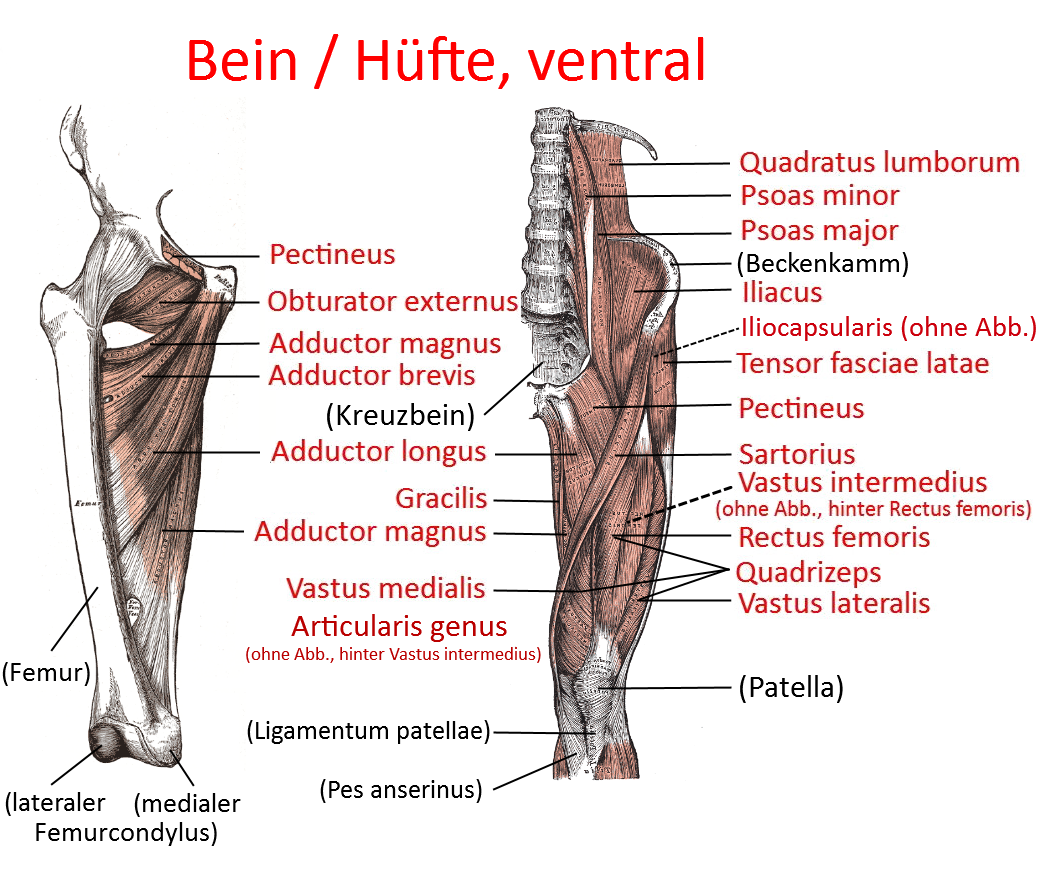yogabook / muscles / psoas major

Linkmap

Psoas major
the hip flexor that originates at L1-L7 and B12 and attaches to the inner front upper thigh. In addition to the fact that the psoas major lordoses the lumbar spine, if it is shortened or contracted, the pelvis is tilted forward in relation to the thigh when the leg is extended at the top. As a result of the compensatory movement of the thorax backwards out of the plane of the pelvis in the direction of the spatial vertical, which reflects the person’s efforts to maintain an upright posture and participate in life around him, as well as his efforts to maintain a posture that is as effortless and economical as possible, he will stand with his thorax more or less vertical on average, resulting in a hollow back, i.e. a hyperlordosis of the lumbar spine. Around half of people also have a weaker psoas minor muscle, which is not part of the hip flexors but is located on the ventral pubic bone.
Origin:
- Superficial part: lateral surfaces of the 12 BW and LW 1-4,
- Deep portion: transverse processes LW 1-5 and associated intervertebral disc
Attachment: Lesser trochanter of the femur
Innervation: plexus lumbalis (via Rami musculares) and nervus femoralis (L1-L4)
Antagonists:
Movement: Flexion and exorotation in the hip joint, extension (lordosis) and lateralflexion (lateral flexion) of the lumbar spine
